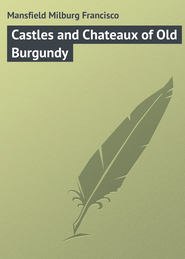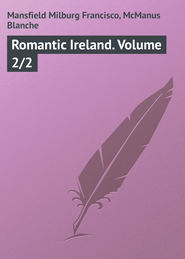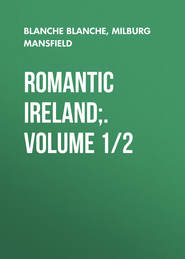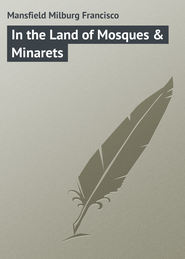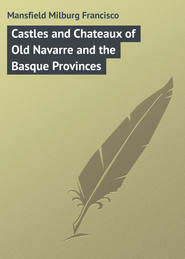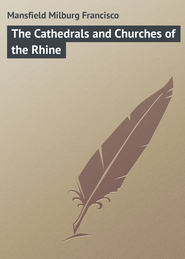По всем вопросам обращайтесь на: info@litportal.ru
(©) 2003-2024.
✖
The Automobilist Abroad
Настройки чтения
Размер шрифта
Высота строк
Поля
"Vous trouverez sons ce pli le procès-verbal de réception délivré par le constructeur.
"Veuillez agréer, etc."
NAMES OF ARRONDISSEMENTS AND DISTINGUISHING LETTERS BORNE BY AUTOMOBILES IN FRANCE
CUSTOMS DUTIES IN FRANCE.
Fifty francs per 100 kilos on all motor vehicles weighing more than 125 kilos. Automobiles (including motor-cycles) weighing less than 125 kilos pay a flat rate of 120 francs.
Members of most cycling touring clubs can arrange for the entry of motor-cycles free of duty.
All customs duties paid, in France may be reimbursed upon the exportation of the automobile. The formalities are very simple. Inquire at burèau of entry.
BELGIUM
Customs Dues. 12 1/2 per cent. ad valorem (owners' declaration as to value), but the authorities reserve the right to purchase at owners valuation if they think it undervalued. This is supposed to prevent fraud, and no doubt it does.
A driving certificate is not required of tourists, but a registered number must be carried. Plates and a permit are supplied at the frontier station by which one enters, or they may be obtained at Brussels from the chef de police.
Speed limit: 30 kilometres per hour in the open country and 10 kilometres per hour in the towns, except, generally speaking, the larger cities hold down the speed to that of a trotting horse.
HOLLAND
Customs Dues are five per cent, ad valorem, but in practice nothing is demanded of genuine tourists and a permit is now given (1906) for eight days with a right of extension for a similar period.
Foreign number plates, once recorded by the Dutch customs officials, will supplant the need of local number plates.
SWITZERLAND
Customs Dues are 60 francs per 100 kilos. This amount, deposited on entering the country, will be refunded upon leaving and complying with the formalities.
Legally a driving and "circulation" permit may be demanded, but often this is waived.
In the Canton Valais only the main road from St. Maurice to Brigue is open for automobile traffic. Many other roads are entirely closed.
N.B. Traffic regulations in many parts are exceedingly onerous and often unfair to foreigners.
A recent conference of the different cantons has been held at Berne to consider the question of automobile traffic in the country. It was decided to fix a blue sign on the roads where motorists must slacken speed, and a yellow sign where motoring is not allowed. The Department of the Interior was deputed to draw up a uniform code of rules for the guidance of police deputed to take charge of the roads. No decision was arrived at as regards uniformity in fines for infraction of the regulations, but steps are to be taken to put an end to the abuses to which it is alleged the police have subjected motorists. A resolution was furthermore adopted to the effect that no road is to be closed to motor-cars without an agreement between the authorities of all the cantons concerned, and that all foreign motorists shall be given a copy of the regulations on entering the country.
The above information is given here that no one may be unduly frightened, but there is no question but that Switzerland has not been so hospitable to automobile tourists as to other classes.
The Simplon Pass, under certain restrictions has recently been opened to automobiles. Open from June 1st to October 15th, except on Mondays, Thursdays, and Saturdays, but no departure can be made from either Brigue or Gondo after three P. M. Apply for pass at the Gendarmerie. Speed 10 kilometres on the open road, and 3 kilometres on curves and in tunnels.
ITALY
Customs Dues are according to weight.
A certificate for importation temporaire is given by the customs officers on entering, and the same must be given up on leaving the country, when the sum deposited will be reimbursed.
Since January 8, 1905, a driving certificate is compulsory, but the authorities will issue same readily to tourists against foreign certificates or licenses.
Speed during the day must be limited to 40 kilometres an hour in the open country and 12 kilometres in the towns.
At night the speed (legally) may not exceed 15 kilometres an hour. Lamps white on the right, green on the left. There are special regulations for Florence.
LUXEMBOURG
Customs Dues. – One hundred and fifty marks per automobile. A pièce d'identité will be given the applicant on entering, and upon giving this up on leaving the duties will be reimbursed.
German, French, and Belgian coins all pass current (except bronze money).
GERMANY
Customs Dues. – Temporary importation by tourists 150 marks per auto. Oil and gasoline in the tanks also pay duty under certain rulings. A small matter, this, anyway.
According to recent regulations tourists are permitted to introduce motor-vehicles into Germany for a temporary visit, free of customs duty, but it has been left to the discretion of the official to give motorists the benefit of this arrangement, or to charge the ordinary duty, with the result that some have had to make a deposit, and others have succeeded in passing their cars into the country free.
Uniform driving or tax regulations are wanting in Germany, but something definite is evidently forthcoming from the authorities shortly (1906-7), with, the probability that even visitors will have to pay a revenue tax.
Rule of the road is keep to the right and pass on the left, as in most Continental countries.
Speed limits, during darkness, or in populous districts, vary from 9 to 15 kilometres per hour, but "driving to the common danger" is the only other cause which will prevent one making any speed he likes in the open country.
Foreigners should apply to the police authorities immediately on having entered the country for information as to new rules and regulations.
SPAIN
Customs Dues vary greatly on automobiles. The motor pays 18 francs, 50 centimes per hundred kilos., and the carrosserie according to its form or design. Ordinary tonneau type four places, 1,000 pesetas. For temporary importation receipts are given which will enable one to be reimbursed upon exportation of the vehicle. In general the road regulations of France apply to Spain.
Speed limit, 28 kilometres per hour in open country down to 12 kilometres in the towns.
A circulation permit and driving certificate should be obtained.
M. J. Lafitte, 8 Place de la Liberté, Biarritz, can "put one through" (at an appropriate fee), in a manner hardly possible for one to accomplish alone.
A special "free-entry" permit is sometimes given for short periods.
Appendix XII
Some Notes On Map – Making
The most fascinating maps for tried traveller are the wonderful Cartes d'Etat Major and of Ministre de l'Intérieur in France. The Ordnance Survey maps in England are somewhat of an approach thereto, but they are in no way as interesting to study.
One must have a good eye for distances and the lay of the land, and a familiarity with the conventional signs of map-makers, in order to get full value from these excellent French maps, but the close contemplation of them will show many features which might well be incorporated into the ordinary maps of commerce.
The great national roads are distinctly marked with little dots beside the road, representing the tree-bordered "Routes Nationales," but often there is a cut-off of equally good road between two points on one's itinerary which of course is not indicated in any special manner. For this reason alone these excellent maps are not wholly to be recommended to the automobilist who is covering new ground. For him it is much better that he should stick to the maps issued by the Touring Club de France or the cheaper, more legible, and even more useful Cartes Taride.
In England, as an alternative to the Ordnance Survey maps, there are Bartholemew's coloured maps, two miles to the inch, and the Half Inch Map of England and Wales.






